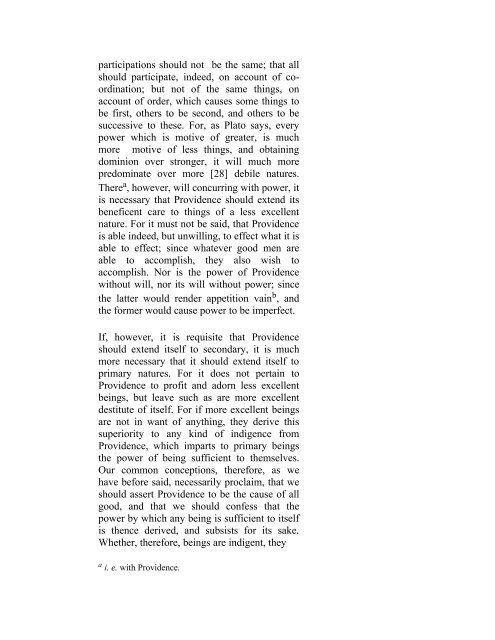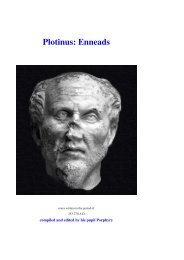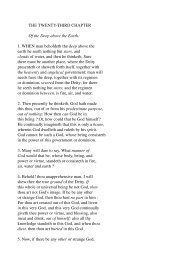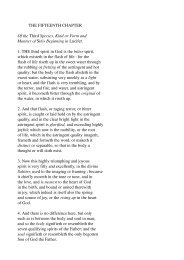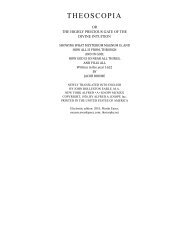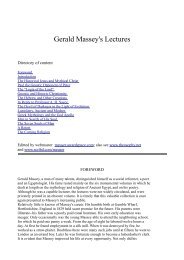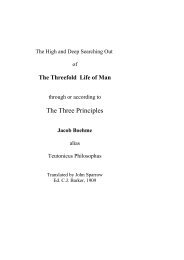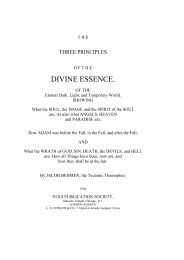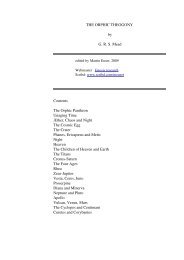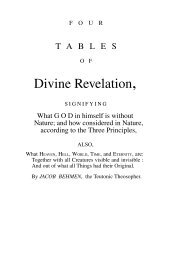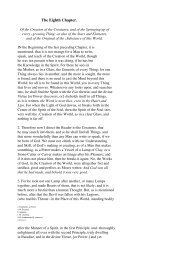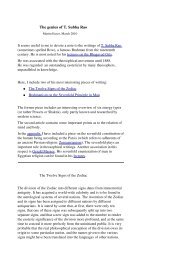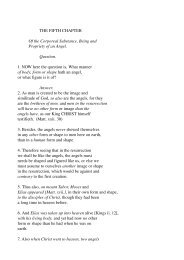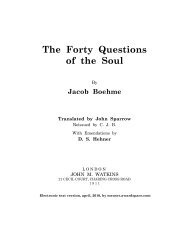PROCLUS, THE PLATONIC SUCCESSOR
PROCLUS, THE PLATONIC SUCCESSOR
PROCLUS, THE PLATONIC SUCCESSOR
You also want an ePaper? Increase the reach of your titles
YUMPU automatically turns print PDFs into web optimized ePapers that Google loves.
participations should not be the same; that all<br />
should participate, indeed, on account of coordination;<br />
but not of the same things, on<br />
account of order, which causes some things to<br />
be first, others to be second, and others to be<br />
successive to these. For, as Plato says, every<br />
power which is motive of greater, is much<br />
more motive of less things, and obtaining<br />
dominion over stronger, it will much more<br />
predominate over more [28] debile natures.<br />
There a , however, will concurring with power, it<br />
is necessary that Providence should extend its<br />
beneficent care to things of a less excellent<br />
nature. For it must not be said, that Providence<br />
is able indeed, but unwilling, to effect what it is<br />
able to effect; since whatever good men are<br />
able to accomplish, they also wish to<br />
accomplish. Nor is the power of Providence<br />
without will, nor its will without power; since<br />
the latter would render appetition vain b , and<br />
the former would cause power to be imperfect.<br />
If, however, it is requisite that Providence<br />
should extend itself to secondary, it is much<br />
more necessary that it should extend itself to<br />
primary natures. For it does not pertain to<br />
Providence to profit and adorn less excellent<br />
beings, but leave such as are more excellent<br />
destitute of itself. For if more excellent beings<br />
are not in want of anything, they derive this<br />
superiority to any kind of indigence from<br />
Providence, which imparts to primary beings<br />
the power of being sufficient to themselves.<br />
Our common conceptions, therefore, as we<br />
have before said, necessarily proclaim, that we<br />
should assert Providence to be the cause of all<br />
good, and that we should confess that the<br />
power by which any being is sufficient to itself<br />
is thence derived, and subsists for its sake.<br />
Whether, therefore, beings are indigent, they<br />
a i. e. with Providence.


